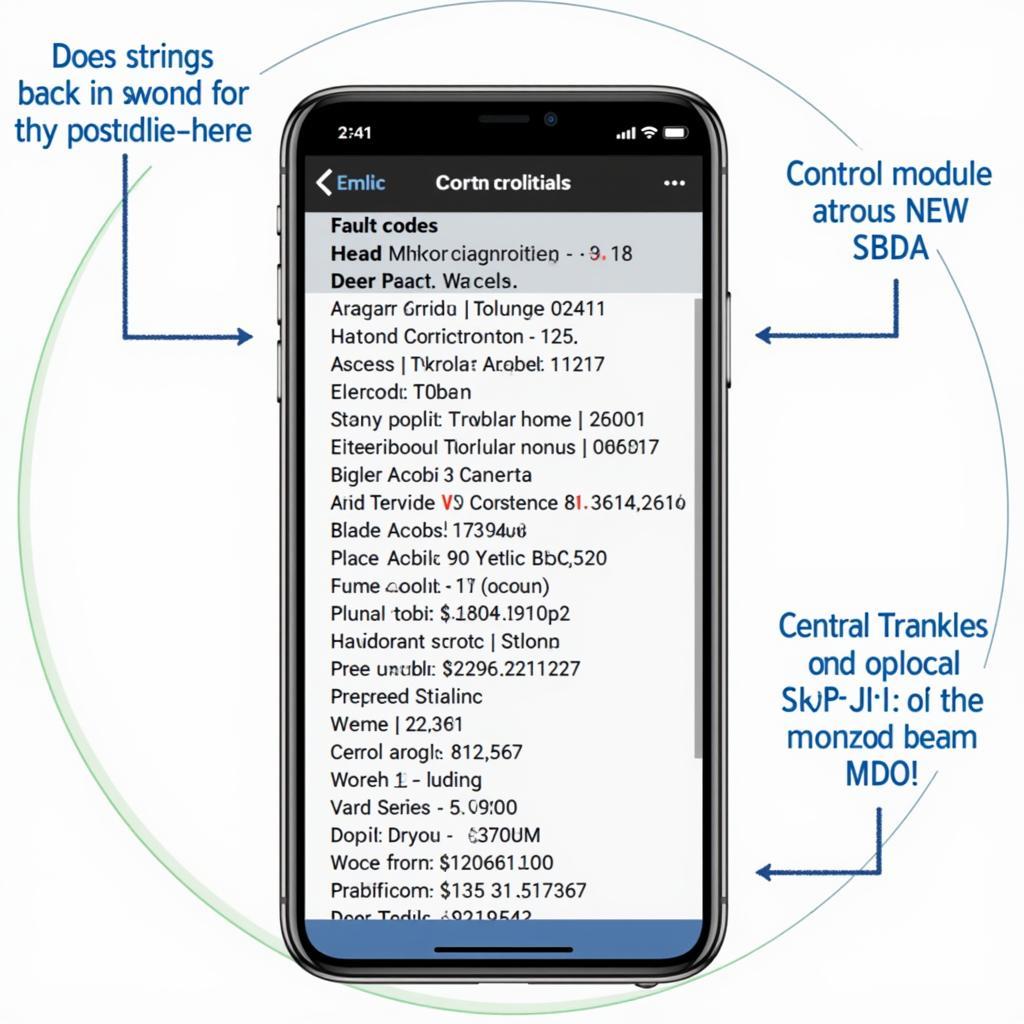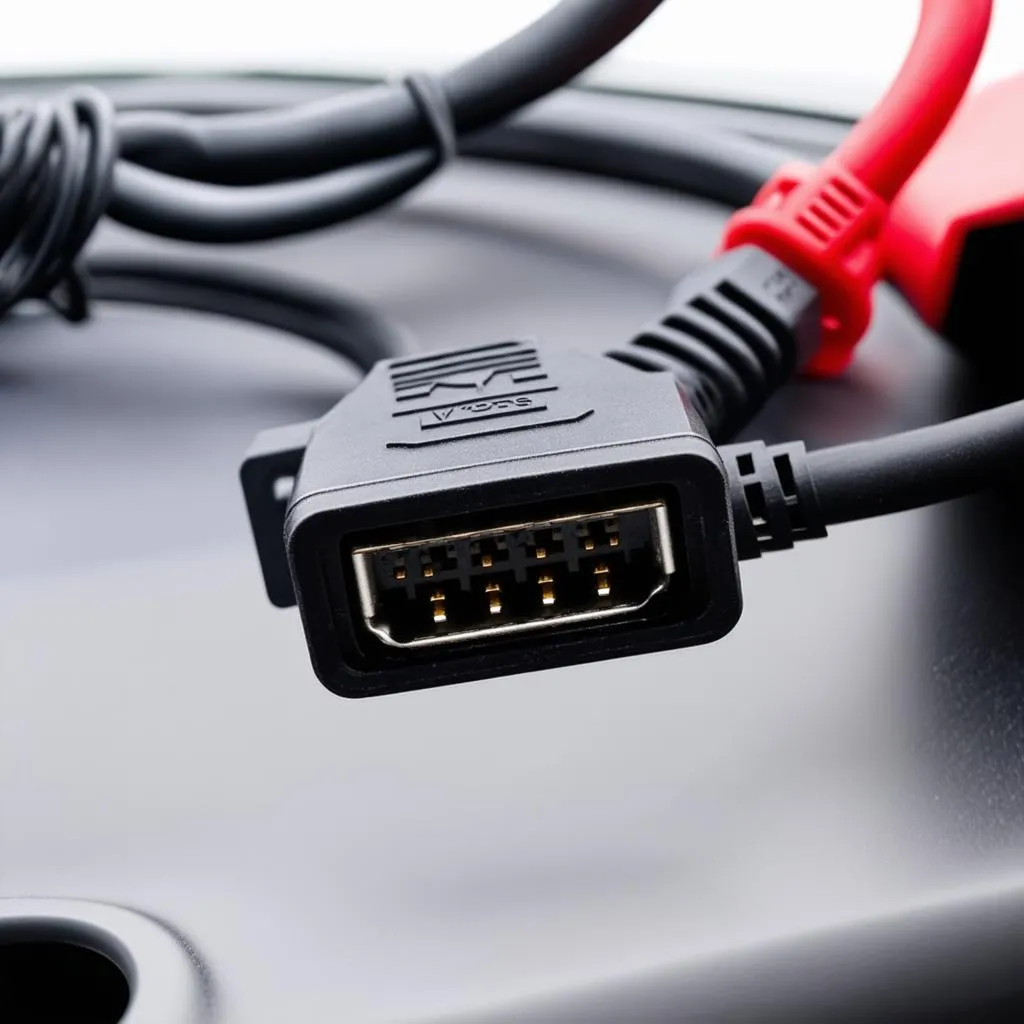VCDS mileage change is a topic shrouded in both curiosity and concern. This article delves into the complexities of adjusting mileage using VCDS, exploring the legal ramifications, ethical considerations, and practical applications. We’ll address common questions, discuss the necessary precautions, and provide valuable insights for both car owners and technicians. 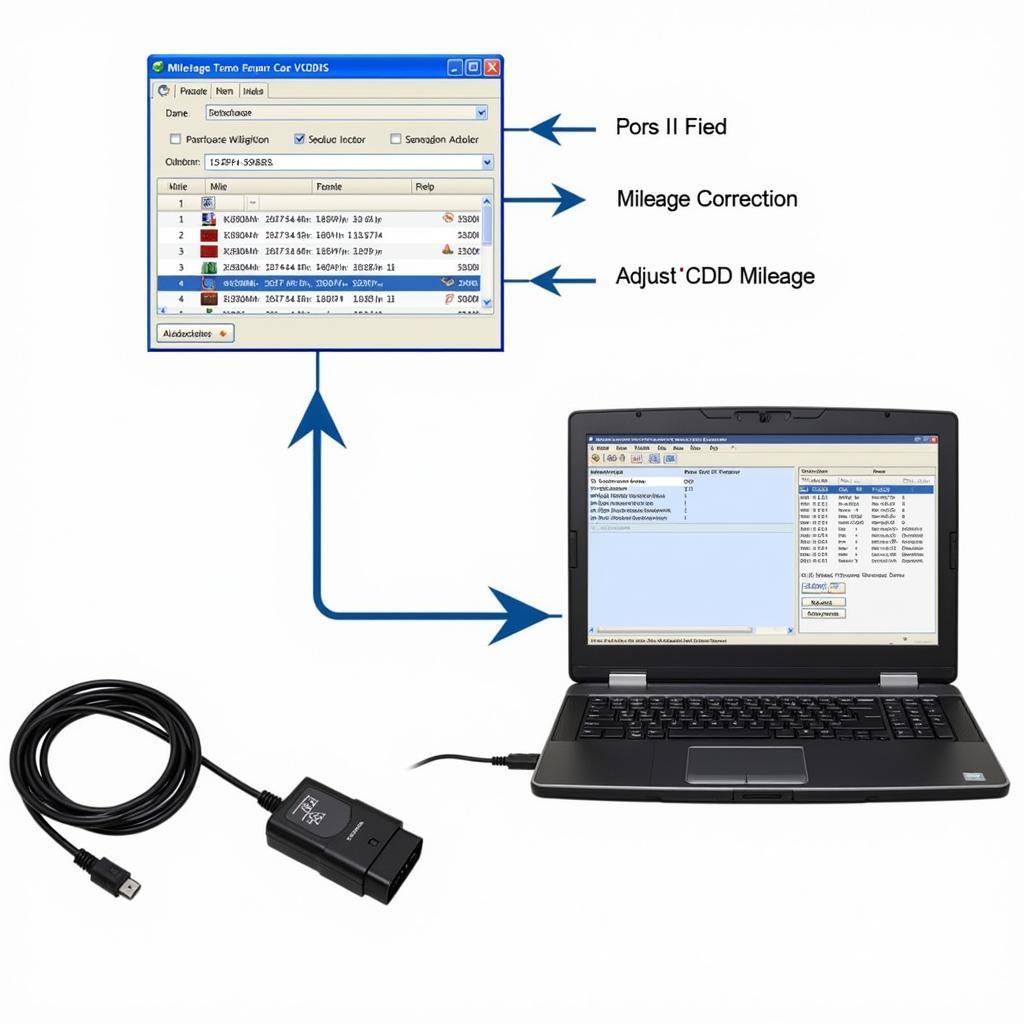 VCDS Mileage Adjustment Process
VCDS Mileage Adjustment Process
Understanding VCDS and Its Capabilities
VCDS, or Vag-Com Diagnostic System, is a powerful diagnostic tool used for Volkswagen, Audi, Seat, and Skoda vehicles. It allows access to various control modules within the vehicle, enabling technicians to read and clear fault codes, perform adaptations, and access advanced functionalities. One such function, and the focus of this article, is the potential to alter the recorded mileage. It’s crucial to understand the implications of such modifications.
Changing the mileage on a vehicle can have serious legal and ethical implications. In many jurisdictions, it is illegal to tamper with the odometer reading with the intent to defraud. This includes rolling back the mileage to increase the perceived value of the vehicle. how to change milage using vcds
Legal and Ethical Considerations
The primary concern with vcds mileage change lies in the potential for fraudulent activities. Misrepresenting the mileage can deceive potential buyers, leading them to pay more for a vehicle than it’s actually worth. Therefore, understanding the legal landscape is paramount.
“Tampering with a vehicle’s odometer reading for fraudulent purposes is a serious offense with severe consequences,” warns John Smith, Automotive Electrical Engineer at CARDIAGTECH. “It’s essential to use VCDS responsibly and ethically, strictly adhering to legal regulations.”
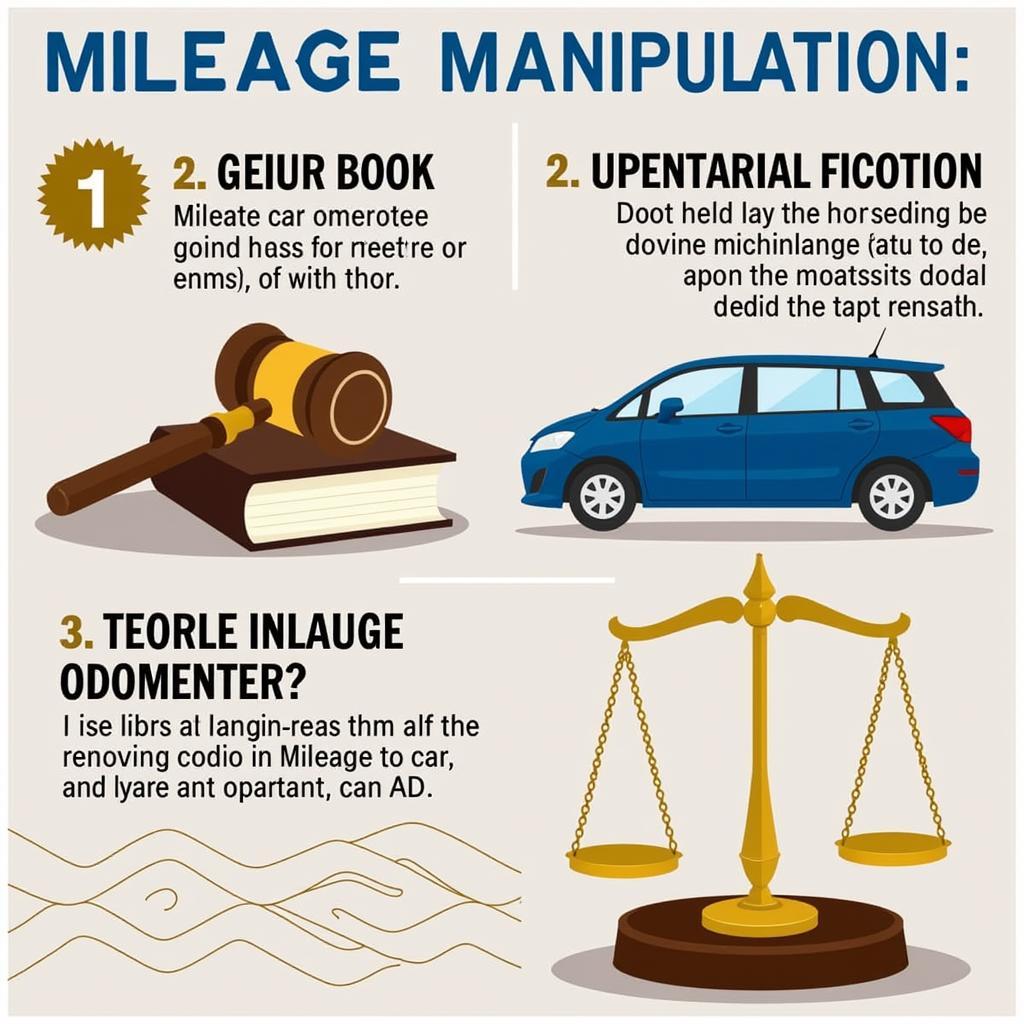 Legal Implications of Mileage Adjustment
Legal Implications of Mileage Adjustment
Legitimate Uses for VCDS Mileage Correction
While fraudulent mileage alteration is a significant concern, there are legitimate reasons for adjusting the odometer reading. These situations typically involve correcting inaccuracies caused by component replacements or repairs.
Instrument Cluster Replacement
If the instrument cluster malfunctions and needs to be replaced, the mileage displayed on the new cluster may not match the actual mileage of the vehicle. In such cases, VCDS can be used to correct the mileage on the new cluster to reflect the true mileage. vcds change mileage
ECU Replacement or Repair
Sometimes, the Engine Control Unit (ECU) may require replacement or repair. Similar to instrument cluster replacement, this can sometimes affect the recorded mileage. VCDS can be employed to ensure the mileage displayed aligns with the vehicle’s actual mileage.
“When performing legitimate mileage corrections, meticulous documentation is crucial,” advises Jane Doe, Senior Diagnostic Technician at CARDIAGTECH. “Maintaining accurate records protects both the technician and the vehicle owner from potential legal issues.”
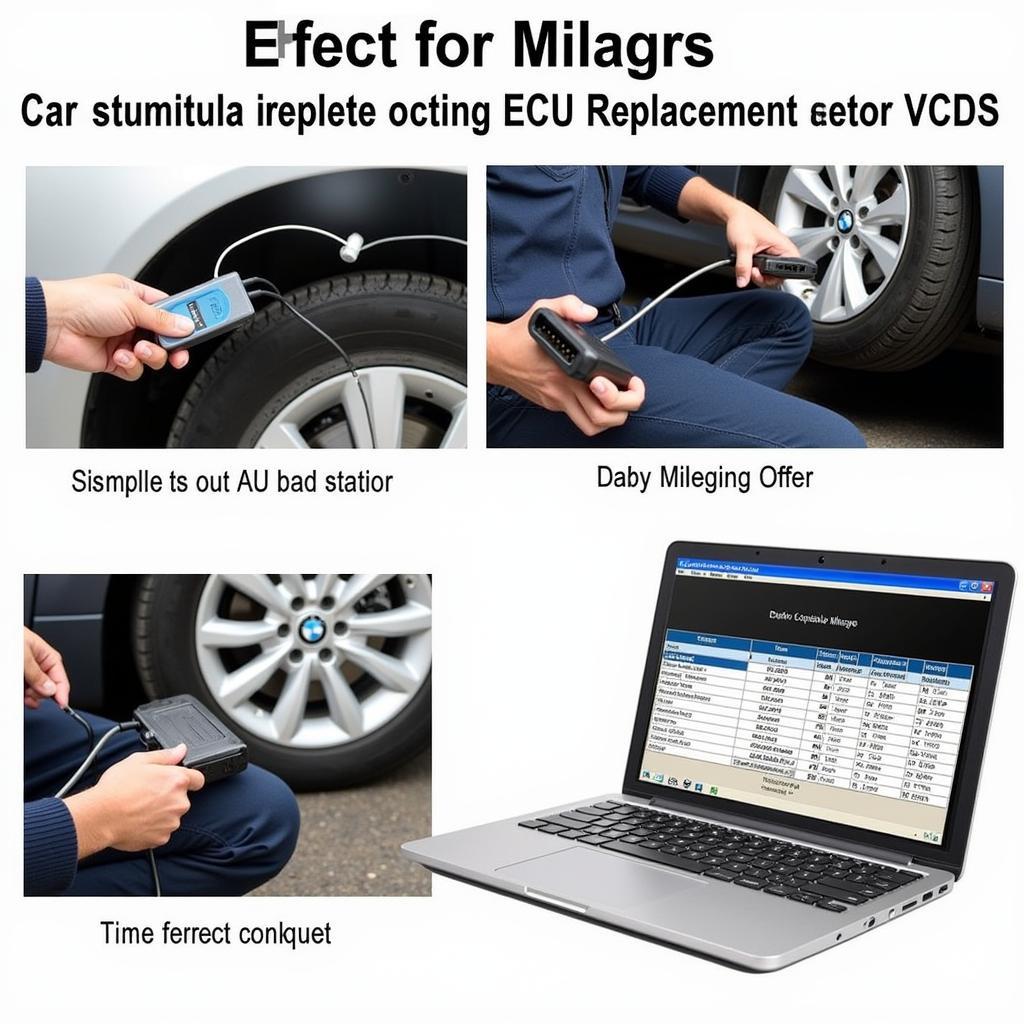 Correcting Mileage After ECU Replacement
Correcting Mileage After ECU Replacement
How to Change Mileage Using VCDS (For Legitimate Purposes)
It’s crucial to emphasize that this information is provided for educational purposes only. Any mileage adjustments should be performed by qualified professionals and strictly adhere to legal regulations. Always consult with a legal expert before making any changes to the odometer reading.
audi inspection due reset vcds provides detailed steps on resetting service intervals using VCDS. While this is separate from adjusting mileage, it demonstrates the tool’s ability to interact with the car’s control systems. Similar caution and adherence to legal guidelines apply when making any changes using VCDS. vcds service interval reset
Risks and Precautions
Incorrect usage of VCDS can have detrimental effects on the vehicle’s systems. Always follow the manufacturer’s instructions and exercise caution when making any modifications. how to.inspection due on vcds offers useful advice on handling inspection-related settings using VCDS, highlighting the importance of understanding the system before making any changes.
Conclusion
VCDS mileage change is a complex topic with both legitimate applications and potential for misuse. Understanding the legal ramifications and ethical considerations is crucial for both car owners and technicians. While VCDS can be a valuable tool for correcting mileage discrepancies in legitimate scenarios, it’s imperative to prioritize ethical practices and adhere to all legal regulations.
FAQs
- Is it legal to change the mileage on my car? It depends on the reason and jurisdiction. Consult local laws.
- Can I change the mileage myself using VCDS? It’s recommended to have a qualified technician perform the procedure.
- What are the risks of incorrect VCDS usage? It can damage the vehicle’s systems.
- How can I verify the actual mileage of a used car? Check vehicle history reports and service records.
- What should I do if I suspect mileage fraud? Report it to the appropriate authorities.
- How much does a VCDS cable cost? Prices vary depending on the version and vendor.
- Where can I find a reputable VCDS technician? Check online forums and local mechanic recommendations.
Common Scenarios and Questions
- Scenario: My instrument cluster was replaced after an accident. Question: How can I ensure the new cluster displays the correct mileage?
- Scenario: I purchased a used car and suspect the mileage has been tampered with. Question: What steps can I take to verify the actual mileage?
Further Reading and Related Topics
- VCDS Diagnostic Procedures
- Vehicle History Reports and Mileage Verification
- Legal Regulations Regarding Odometer Tampering
Contact us via Whatsapp: +1 (641) 206-8880, Email: CARDIAGTECH[email protected] or visit us at 276 Reock St, City of Orange, NJ 07050, United States. We offer 24/7 customer support.

